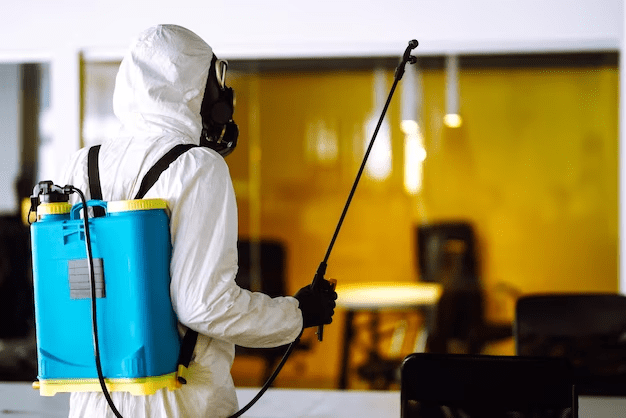The Indian economy has witnessed rapid growth and development in recent years, with several industries emerging as key contributors to its overall progress. One such industry that has gained significant attention in recent times is the pest control industry. With the rise in pest-related problems in various sectors, the industry has grown exponentially and is expected to continue its growth trajectory in the coming years. However, the question that arises is whether the Indian economy is getting any value from this rising industry.
The pest control industry in India has been growing at a CAGR of 5.6% and is expected to reach INR 124.9 billion by 2023. The growth of this industry can be attributed to several factors such as increased awareness about pest-related problems, the rise in the number of commercial and residential properties, and the growing demand for pest control services in the agriculture sector. The pest control industry comprises various segments such as rodent control, insect control, termite control, and others, with insect control being the largest segment.
One of the primary reasons for the growth of the pest control industry in India is the increase in pest-related problems. Pests such as rodents, insects, and termites can cause significant damage to properties and crops, leading to financial losses. With the rise in the number of commercial and residential properties, the demand for pest control services has increased. The urbanization and globalization of India have led to a significant increase in the number of high-rise buildings, hotels, restaurants, and other commercial establishments, creating a vast market for pest control services.
The agriculture sector in India is another major contributor to the growth of the pest control industry. Pests such as locusts, aphids, and borers can cause extensive damage to crops, resulting in decreased yields and lower quality produce. The Indian agriculture sector is highly dependent on crops such as rice, wheat, and cotton, which are susceptible to pest attacks. The rise in demand for organic and chemical-free produce has also led to an increase in the use of pest control services in the agriculture sector.
The pest control industry has also led to the creation of jobs in India. The industry employs a significant number of people, including pest control technicians, sales representatives, and management professionals. The growth of this industry has led to the creation of new job opportunities and has contributed to the overall growth of the Indian economy. The industry also provides training and certification programs for technicians, which helps in enhancing their skills and improving their employability.
The pest control industry has also contributed to the overall development of the Indian economy by generating revenue. The industry has created a market for pest control products such as insecticides, rodenticides, and termiticides. The production and sale of these products have led to the growth of several ancillary industries such as the chemical industry, packaging industry, and transportation industry. The rise in demand for pest control services has also led to the emergence of several new companies in the market, contributing to increased competition and innovation.
However, the rising pest control industry in India has also raised concerns about the impact of pest control chemicals on human health and the environment. The use of chemical pesticides and insecticides can have adverse effects on human health, leading to respiratory problems, skin irritations, and other health issues. The chemicals used in pest control services can also contaminate soil, water, and air, leading to environmental degradation.
To mitigate these concerns, the Indian government has introduced several regulations and policies to ensure the safe use of pest control chemicals. The Central Insecticides Board and Registration Committee (CIBRC) is responsible for the registration of pest control products and ensures that the products meet the safety standards set by the government. The government has also launched several awareness campaigns to educate people about the safe use of pest control services and products.
What the future holds for pest control industry in India?
The pest control industry in India is expected to continue its growth trajectory in the coming years. According to industry reports, the industry is projected to grow at a CAGR of 6.3% from 2020 to 2025, driven by factors such as increased awareness about pest-related problems, the rise in commercial and residential properties, and the growing demand for pest control services in the agriculture sector.
The rise in demand for organic and chemical-free produce is expected to drive the growth of the pest control industry in the agriculture sector. With the increasing adoption of integrated pest management (IPM) practices, there will be a shift towards the use of biological and natural pest control methods, leading to increased demand for organic pesticides and biocontrol agents.
The adoption of digital technologies such as IoT-enabled pest control devices and mobile applications for pest management is expected to gain momentum in the coming years. These technologies can help in real-time monitoring and management of pest infestations, leading to increased efficiency and effectiveness of general pest control services.
The increasing focus on sustainability and environmental conservation is expected to drive innovation in the pest control industry. There will be a greater emphasis on the development of eco-friendly pest control products and services that are safe for human health and the environment.
